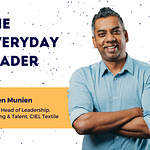Cassandra Kiereini is a professional with over 12 years of experience in project management, expansion and growth management, and senior management. She is currently the Director at Shortlist, where she runs several employment programs that connect youth and women to jobs in clean energy, climate tech and digital work. Previously, she held several management roles at companies such as Shara Technologies, Twiga Foods, and d.Light Solar. At Twiga Foods, she was the Expansion Planning and Project Manager responsible for strategic planning and project management for expansion into new geographies. Cassandra is also a Board Member at Cohere.Org, where she provides advisory support to the senior management team.
In a recent podcast episode, Cassandra shared her insights on leadership and management in project management. With experience working with diverse teams across various sectors, Cassandra has encountered numerous challenges and opportunities in her career. In this article, we will highlight some of the key takeaways from her conversation.
The Role of a Leader
According to Cassandra, understanding the mission of the organization and how it connects to the work of the team is crucial for being an effective leader. As a leader, it is important to create a safe and inclusive work environment where team members feel comfortable expressing their personal and work-related concerns. Empathy is a key skill that can help leaders connect with team members and drive collaboration. By being empathetic, leaders can better understand the needs of their team members and provide support where needed.
Challenges of Management
One of the biggest challenges in management is knowing when to let go of team members who are not meeting expectations. Giving feedback throughout the employee's time at the company is important, but it can be tough to separate the personal emotions from the professional responsibilities. Cassandra shared that she sometimes struggles with this aspect of management. It is important for managers to provide constructive feedback and support to employees, but also to recognize when it may not be a good fit and make the tough decision to let them go.
Power Skills
Cassandra highlighted the importance of "power skills" (also known as soft skills) in the workplace, specifically for young people trying to get their first jobs or in their first jobs. Power skills refer to skills like communication, teamwork, and presentation skills that are necessary for success in the workplace, but that are not always taught in formal education. Cassandra is currently working on a project to help young people develop and showcase their power skills to potential employers. By helping young people develop these skills, they can better position themselves for success in the job market.
Remote Work
The rise of remote work has brought about new challenges for team management. Cassandra discussed the challenges of working remotely and shared some strategies used by her team to stay connected and engaged. One strategy that stood out was the implementation of an internal pairing system, where team members are randomly matched with each other monthly to catch up informally. This has helped to create a sense of community within the remote team. It is important for managers to find ways to keep their team members engaged and connected, even when working remotely.
Cassandra's insights emphasize the importance of empathy, communication, and collaboration in leadership and management. Understanding the mission of the organization and the needs of team members is crucial for creating a safe and inclusive work environment and driving success in project management. By recognizing the importance of power skills and providing support to help develop them, managers can better position their team members for success in the job market. Finally, in a remote work environment, it is important for managers to find ways to keep their team members connected and engaged. By implementing strategies like coffee chats, managers can create a sense of community within the remote team.












Share this post